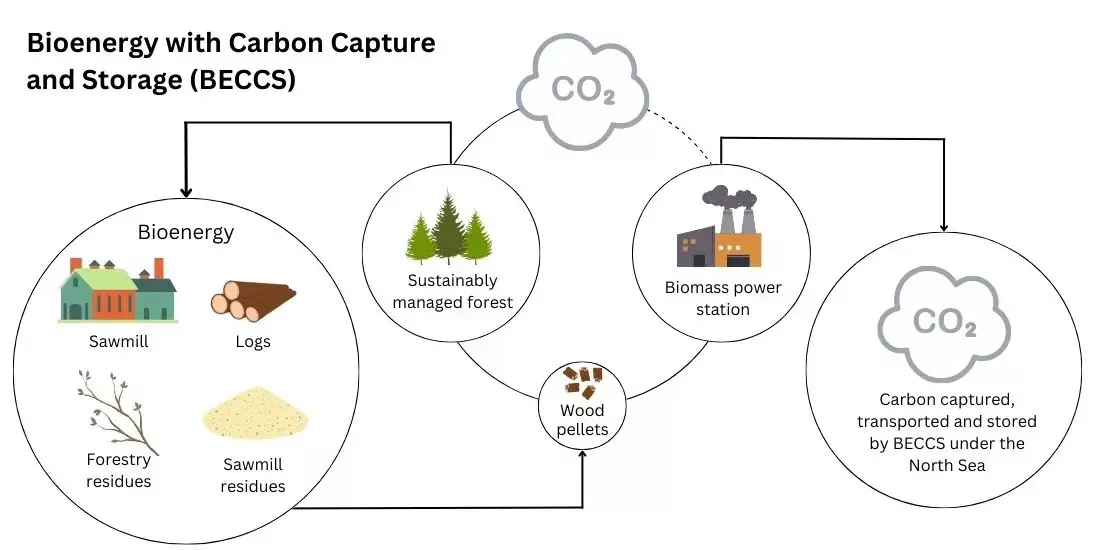Biomass Push from Government

The Biomass Strategy 2023 was announced by the government in August and is one of the ways in which the UK’s net zero targets will be reached. It’s meant to work on the back of the biomass policy statement of 2021 as a way to help increase uptake and reduce CO₂ emissions. It’s not just residential emissions that are being targeted either, as transportation, power generation, industry and agriculture emissions are also being looked into.
Biomass has been used for power, heat and transport since the 2000s. While some sources say this has made the UK a global leader in biomass policy and technologies, Statista ranks the country as the sixth in terms of biomass capacity in 2022. This is behind China, Brazil, America, India and Germany. The difference between China and the UK is 26,837 megawatts. Of the total UK energy supply last year, 8.6% was attributed to biomass.
The report from the government specifies that residential biomass makes up 66% of the total supply throughout the UK. It goes on to suggest that for the medium to long term, bioenergy should be used in conjunction with carbon capture and storage as an effective way to meet emissions targets. Despite the dangers of an over-reliance on carbon capture, the government has outlined its strategy in detail, including the use of sustainably managed forests.

At the point of power generation, carbon will be captured, transported and then stored in a secure site underneath the North Sea. National Grid Ventures will be in charge of this. Because wood is a sustainable, regenerative source of fuel, a cyclical system is produced, where nothing is wasted. Adding in the additional measure of capturing carbon, the low carbon technology of biomass will become even more sustainable, providing the technology is watertight at scale.
The government has set out plans to fully decarbonise the power system by 2035, and advocates of bioenergy with carbon capture and storage (BECCS) have emphasised that action cannot be delayed if ambition is going to translate into deliverable policy. The knock-on effect is hoped to drive innovation into sustainable aviation fuels and bio-hydrogen avenues.
According to Forest Research, while some sources state that biomass is a completely clean technology (or carbon-neutral), this isn’t strictly true. It’s only in instances where sustainably managed forests and new growth is achieved where net emissions from biomass are kept in check. Any emissions through combustion are then removed from the atmosphere in seedling and photosynthesis in well managed woodlands. Deforestation cancels this net absorption and facilitates emissions akin to using fossil fuels.
Not only are emissions produced during use, but the transportational emissions of refuelling should also be considered. Owners of biomass boilers will rarely have access to their own woodlands where they can source fuel for no cost. Any fuel source will need to be delivered to your household, which will generate emissions in the process. At any rate, biomass is not a true form of renewable technology, at least not yet. If carbon capture proves to be scalable and workable, then biomass will become a preferred heating method.
As the cycle of BECCS is implemented and improved, innovation will lead to cheaper, more affordable technologies that will directly impact consumer uptake. Households are currently able to make use of the Boiler Upgrade Scheme, which gives you £5,000 towards a biomass boiler. Currently, biomass boilers are anywhere from £4,000 to over £20,000, depending on the type and model. For many, this can still be unaffordable, even with the grant.
Manual-fed biomass boilers are the cheaper option, but require labour to constantly top up the fuel source. Automatic-fed alternatives are more expensive, but can be left to operate on their own. For the sake of a cheaper boiler, consumers will most likely not want to change their heating habits to keep topping up their biomass system. Hopefully, innovation will lead to this technology becoming more affordable and worthwhile for households to implement across the UK.
